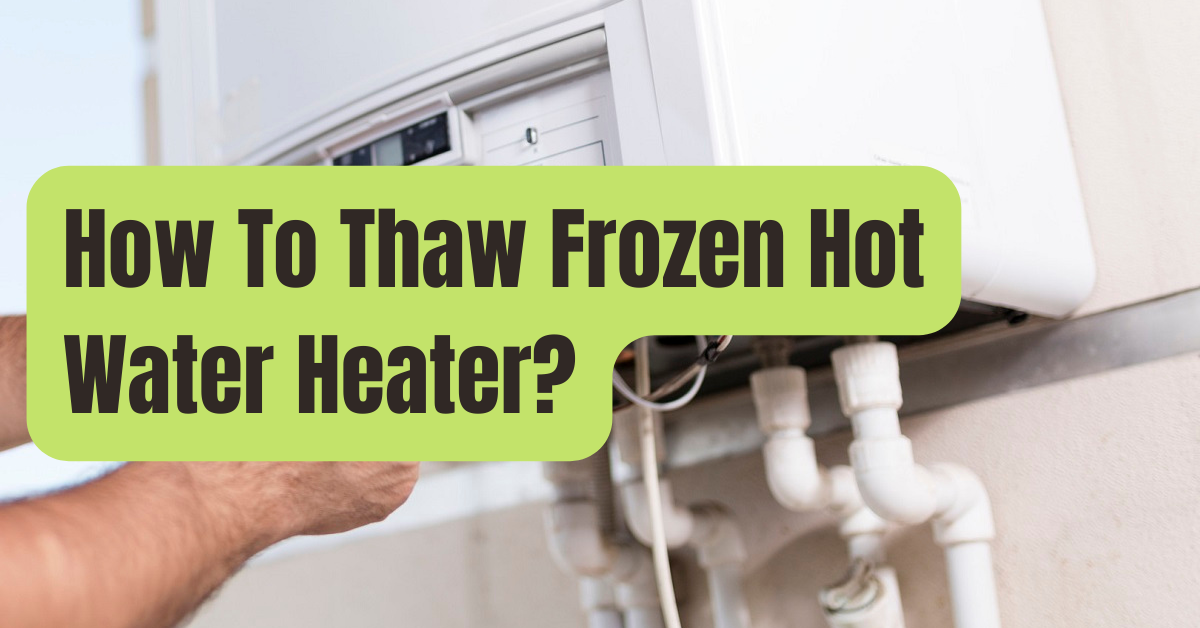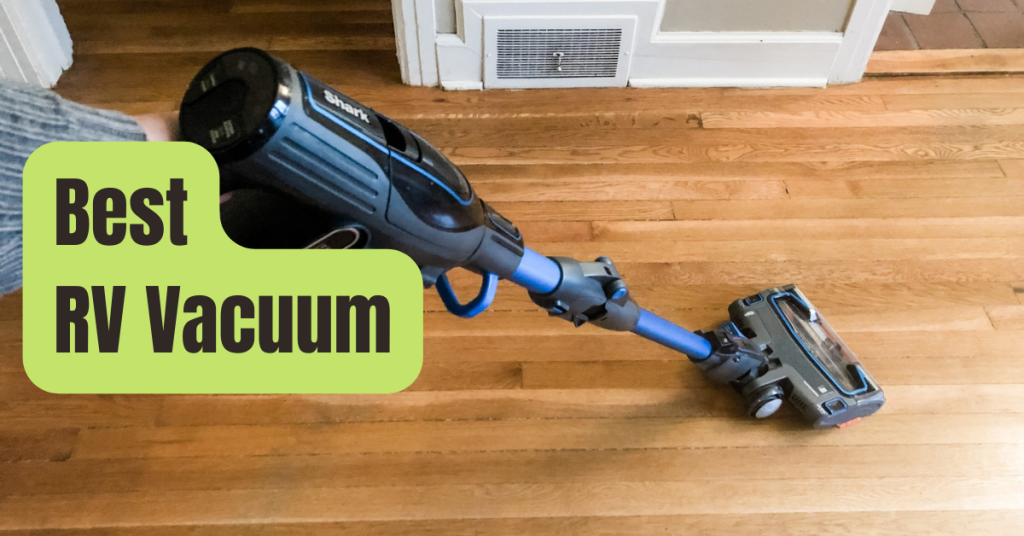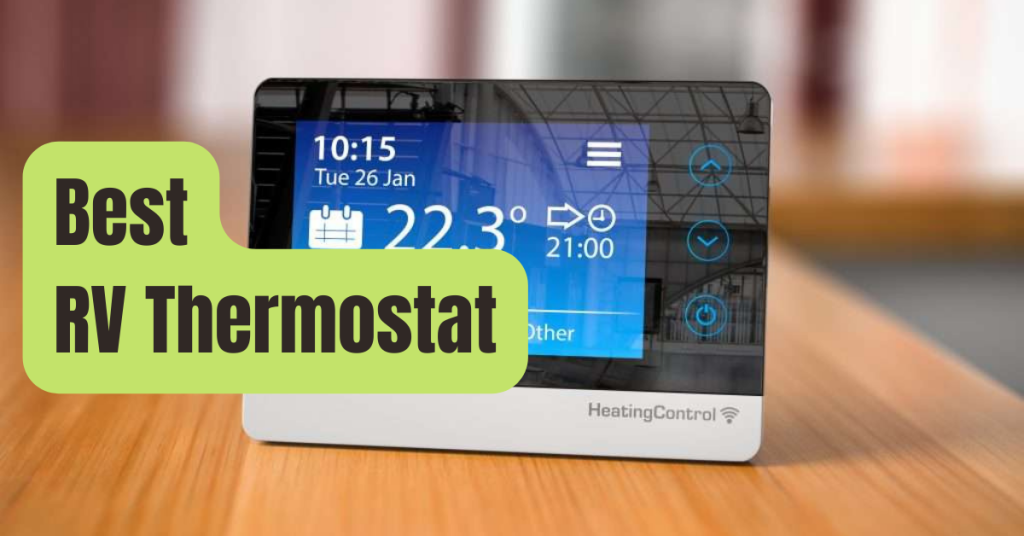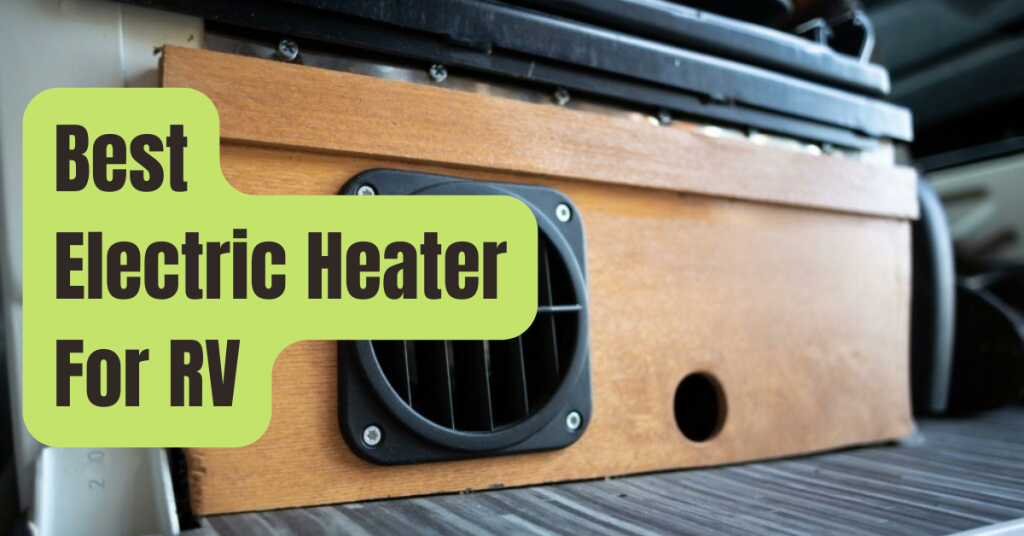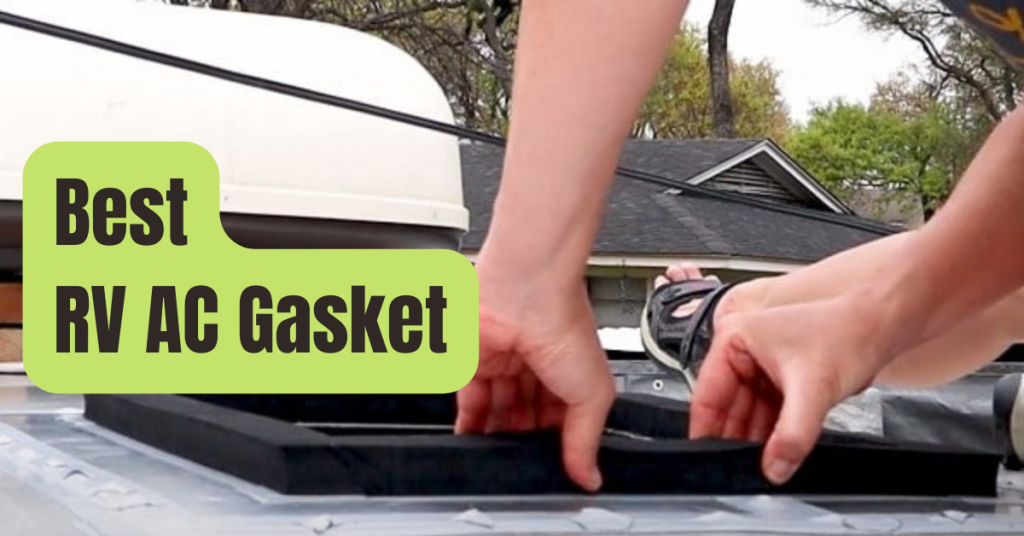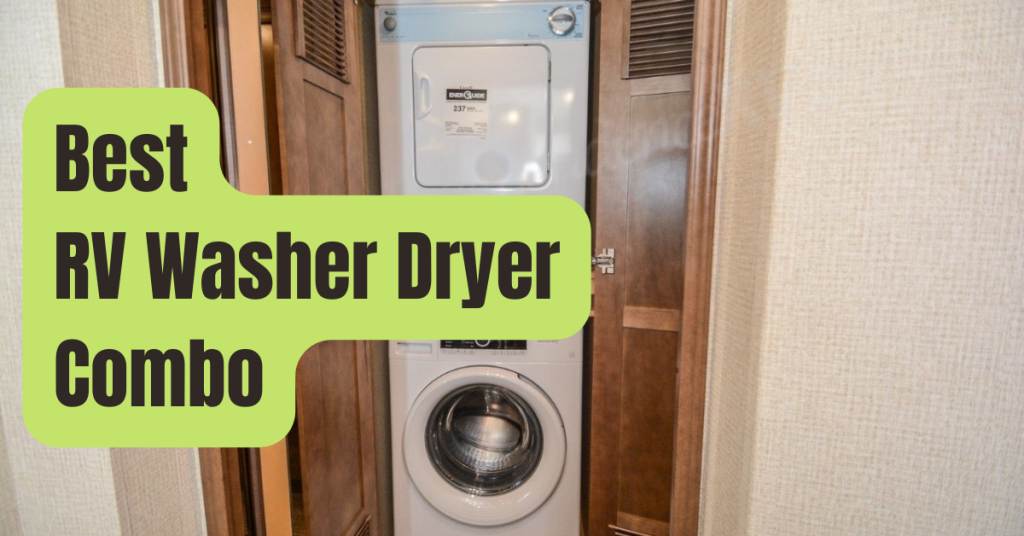It’s difficult to picture a hard winter without a steady supply of hot water.
If your water heater fully freezes without any previous warning, the issue might become worse.
The majority of people in drier climates do not have to worry about the hard winters, but residents in locations with harsh winters should always be ready for frozen water heaters.
Consequently, we have outlined a thorough post that focuses on the right methods to assist you resolve this problem.
Additionally, we covered the most important issues that all water heater owners need to be aware of.
Why Would A Water Heater Freeze?
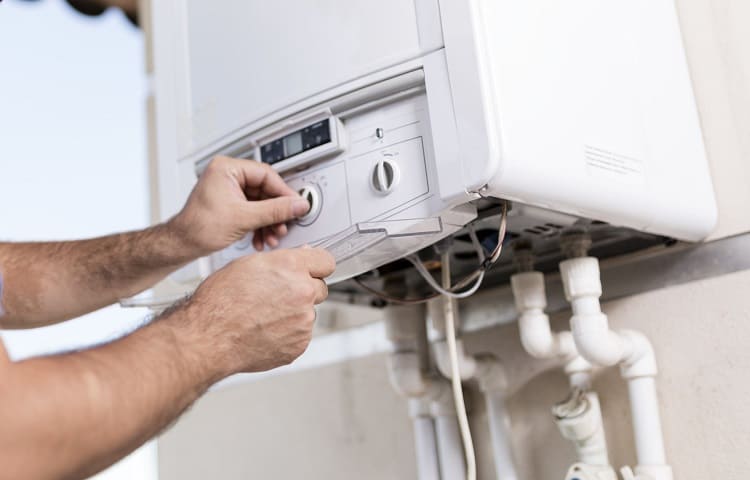
The sharp decrease in temperatures is the most evident cause of a frozen water heater.
Your water heaters may begin to freeze quickly after the region has reached freezing temperatures.
The frequent power outages are a significant contributing factor in frozen heaters.
Within a few hours, the combination of these two elements might severely clog your water heating system.
Open pipes left alone may also cause freezing.
These pipes sometimes experience overexpansion and begin to leak.
Even worse, the leaks have the potential to explode, disrupting and harming the whole heating system.
Sometimes the heater’s failure to function properly is the primary cause of the problem.
Older types and heaters that operate continuously but without maintenance might freeze pipes.
Finally, a system overload might make the heater work harder than necessary, eventually bringing the device to a frozen halt.
Here Are A Handful Of Them:
- Drastic reduction in temperature
- Recurring electricity outages
- Unmonitored pipes
- Unrepaired heaters
- Sudden overloaded system
How Can The Frozen Water Heater Be Fixed?
We ask that you take these actions if you discover a frozen water heater in your basement.
You may quickly restore the water heater from its frozen condition to a regular functional one by following these nine simple procedures.
Step 1: Assess the Damage.
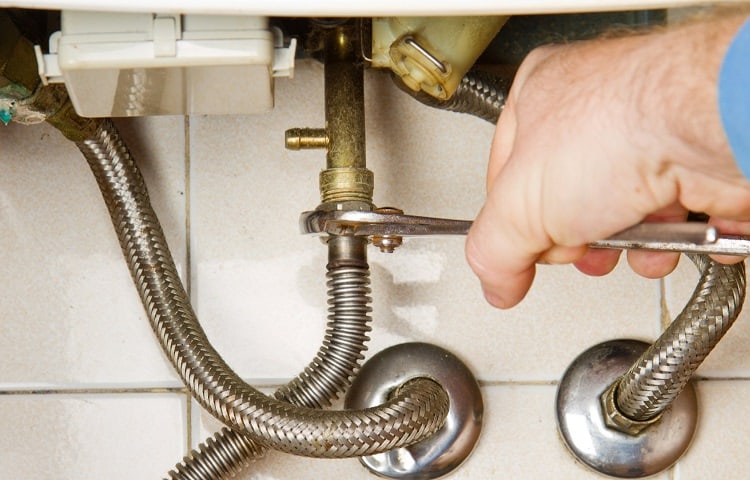
Your first and main impulse should be to check the water heater.
It would be preferable to determine if the heater as a whole or simply the pipes entering and exiting the heater are frozen.
You can determine how bad the problem is by touching the heater from the outside.
Compared to tankless water heaters, this problem affects tank water heaters more often.
However, there is a significant risk of freezing vents and pipes with tankless water heaters.
The next thing to do is to search for any pipe breaks.
Water expands as it freezes, therefore some water runs down to the pipes, generating breakouts, to account for the expansion.
Before defrosting your pipes, it could be a good idea to figure out how to shut off your water valve.
Step 2: Turning The System Off
As soon as you see a frozen appliance, start turning off your water and gas supply.
Skip this step if the issue is just frozen pipes.
Please begin unplugging your water heater before it thaws.
To prevent cleaning up the filth, you may instead put the water heater in a remote location.
The heater will be moved, protecting your other appliances from any unforeseen bursts while the unit thaws.
Step 3: Heating The Space
It may be a good idea to turn on a space heater since indirect heat will hasten the procedure.
Your frozen water heater will melt the ice deposit more quickly the warmer the location is.
Spot heating is not advised since it might harm your water heater.
Step 4: Draining Your Water Heater
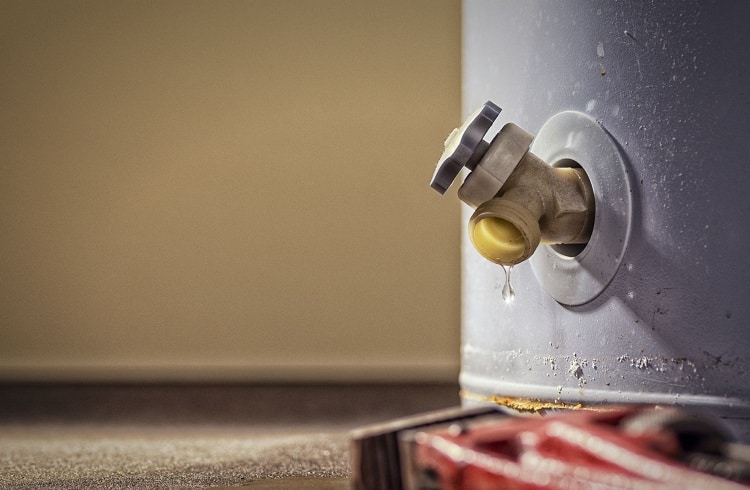
Once ice in your water heater solidifies, it usually damages the interior plastic parts.
By gradually emptying the water heater and disconnecting the heater from the water, you may avoid this.
The valves next to the hot and cold lines may be used to empty the tank effectively.
Before departing for a protracted winter holiday, we strongly advise emptying your tank water heater.
Manually draining the water heater:
- Check again to make sure the water and gas are not on.
- Turn off the system’s temperature control.
- Make sure you have turned off every source of electricity going to the heater.
- Choose a large bucket to collect all the water that has been drained.
- Drain caps for the cold and hot isolation valves should be slowly removed.
- Remove the cold water intake filter by opening the valves.
- Start emptying the system.
Step 5: Opening An Air Release Valve
Open an air release valve or hot faucet to slowly let air back into the water heater tank.
By doing this action, you’ll enable any residual water to drain out as soon as it becomes liquid.
Step 6: Insulating The Exterior Pipes
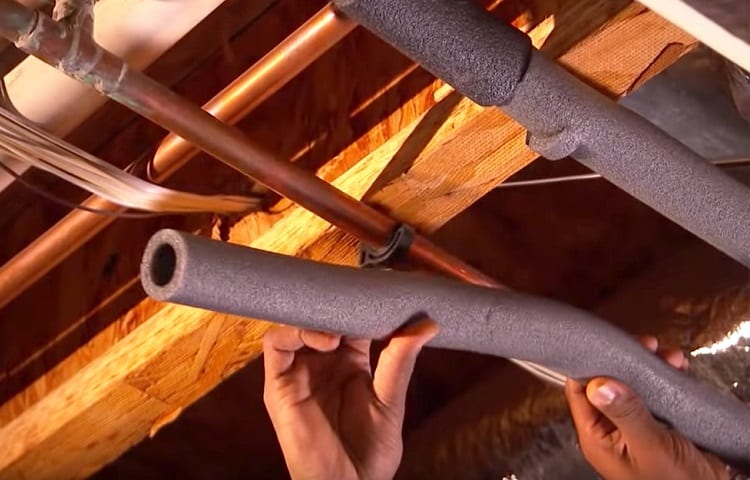
Most of the time, homeowners overlook how crucial it is to insulate their pipes during cold weather.
Whether your system has a tank or not, the exterior lines are equally susceptible to freezing.
Insulation not only offers excellent protection against freezing, but also stops heat from escaping, enhancing the energy-efficiency and speed of your water heater.
Additionally, you may keep the inside pipes warm by briefly utilizing the central heating system each day.
While installing pipe insulation might be pricey, your hot water system won’t freeze in the winter with the right materials and a sufficient covering.
Fiberglass insulation or polyethylene wraps are great options for pipe insulation that won’t break the bank.
Step 7: Cleaning The Intake And Exhaust Vents
The inspection of your intake and exhaust vents is a further essential step.
Cleaning them will ensure that no additional freezing or obstructions occur.
Pipes and vents that are frozen are more likely to explode.
Even minor problems like leakage may can cause substantial long-term harm.
Step 8: Maintaining A Constant And Continuous Power Supply
Once your machine starts functioning again, you must make sure the system receives enough electricity.
For models with an integrated freeze prevention system, this power supply is essential.
For locations and homes that often experience power outages, we recommend utilizing a reliable battery backup.
Step 9: Installing Your Water Heater In A Warmer Area Of Your Home
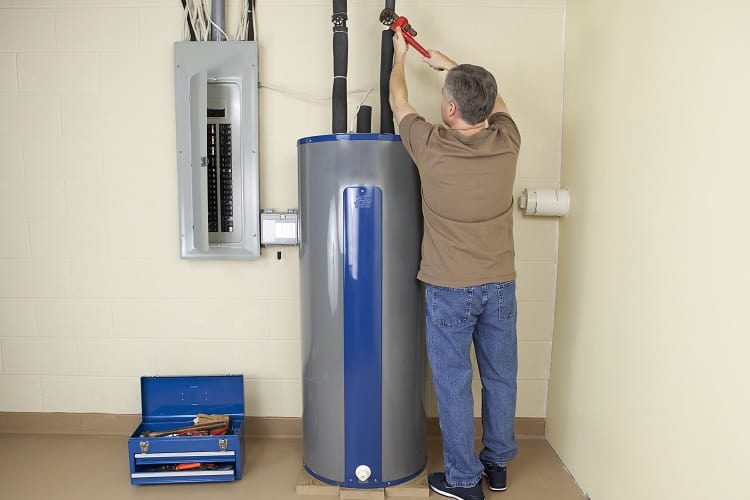
We advise shifting and installing your heating system in a warmer area of the home, even though it may not be the simplest course of action.
Your water heater will be less prone to freeze if you move the device to a warm area.
Keeping the space well-insulated may also be accomplished using a temporary outdoor shelter.
You might get rid of the frozen water heater by following these nine procedures.
Depending on your preferences and needs, you may undoubtedly skip a few stages.
How Can You Tell If A Water Pipe Is Bursting?
Frozen water heaters are infamously prone to water pipe breaches.
The majority of the time, you will first notice very little fractures and then a leaking, constant stream of water.
To prevent any further strain on your water heaters, these pipes must be replaced promptly.
Minor fractures might sometimes be practically impossible to find on the first inspection.
But as soon as the pipe breaks, you will start to detect wet areas behind your wall or ceiling.
Your first priority should be to replace these pipes.
For a water heating system that operates well in all seasons, we advise inspecting your lines every other week.
Do Frozen Pipes Need To Defrost On Their Own?
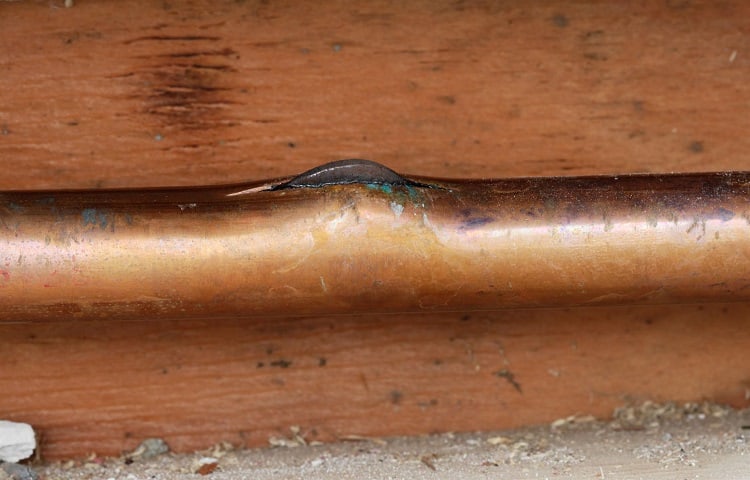
No, it is not the best course of action for defrosting frozen pipes.
Leaving them untreated might cause tremendous pressure to build up and cause the pipes to burst open.
Leaving them unattended will result in significant water damage and expensive repair costs.
You may handle the problem gradually by warming up the pipes using technological equipment like heating pads, hairdryers, or heating cables.
Wrapping heated towels over the lines’ perimeter works just as well.
In the vicinity of your frozen pipes, stay away from open-flame appliances like propane heaters and blowtorches.
How Can You Tell If You Have A Frozen Pipe?
The most noticeable symptom is a reduced water flow from all faucets or just one.
Occasionally, a frozen pipe can force a weak trickle of water that will allow you to locate the problem.
The issue may often be detected by a loud gurgling sound coming from the frozen pipe.
Another indication of an ice pipeline is a tube that feels colder to the touch.
Can Pipes In A Water Heater Freeze In A Single Night?

Depending on the weather, water heater pipes might surely freeze over night.
They tend to freeze more quickly at colder temperatures.
Pipes that are properly insulated do not freeze as rapidly as those that are not.
Precautions To Take In Order To Prevent Frozen Water Heaters
#1. Water Heater Without A Tank
Comparing tankless water heaters to conventional tank water heaters, the likelihood of freezing is much lower.
Wintertime protection for these water heaters is not necessary.
It won’t often freeze as long as the heater is linked to the power source.
In colder weather, you should refrain from turning off the heating system.
It is true that disconnecting will leave the heater vulnerable to internal freezing.
Before disconnecting your tankless water heater from the power source in an emergency, be sure it has fully emptied.
#2. Water Heater In A Tank
During the chilly winter months, a classic storage-style water heater has to be heavily protected.
Before winter arrives, we strongly advise examining the whole tank and system.
Leaks, the efficiency of the temperature pressure release valve, and a fully operational sacrificial anode rod should all be examined.
If you see any sediments or calcification at the end of the tank, you may want to think about cleaning it.
Make sure your storage tank has a “R” value of at least 24.
We advise insulating your tank if it is warm to the touch or has an R-value < 24.
#3. A Trickle Of Water Flowing
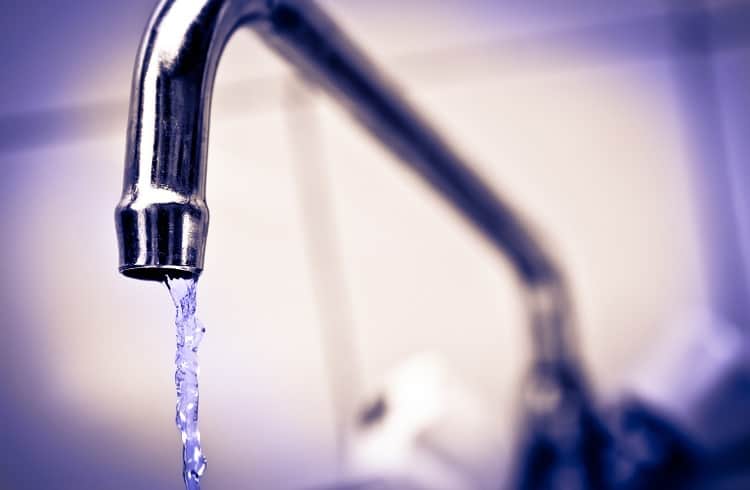
An effective tip for keeping your pipes from freezing in the winter is to keep the water running.
To stop the inside of your pipes from freezing:
- 0.1 to 0.2 gallons of water per minute should be run through the heated side.
- Make sure the gas is turned off when it passes through the furthest fixture. The likelihood of freezing will be reduced since the water will continue to circulate through the heating system.
#4. Routine Maintenance
Constant preventive maintenance is essential for a water heater to operate at peak efficiency.
Before the winter, consider cleansing your water heater and replace any worn or broken components.
#5. Insulate Pipes
One of the most efficient and straightforward solutions to deal with frozen pipes and systems is pipe insulation.
The insulation procedure is rather simple; even those with little experience with insulation may do this work.
#6. Freezing Protection Installation Solitary Valves
Owners of water heaters may now install specialized freeze prevention solenoid valves to maintain system functionality throughout the winter.
When there is an unexpected power outage, these valves automatically open and release water from your tank unit.
#7. The Intake And Exhaust Ports Being Covered
To prevent leaves, dirt, dust, and other debris from entering the ducts, cover the intake and exhaust vents with a strong cover.
The vents won’t have flow problems, which may become worse during the winter, thanks to this coating.
#8. Investing In Heaters With Freeze Prevention Built In
Nowadays, the majority of tankless water heaters are equipped with unique freeze prevention that prevents the system from freezing as long as a constant power supply is provided to the water heater.
This function is available in high-end water heating systems for buyers.
Conclusion
We anticipate that our thorough, step-by-step instructions have given you some useful advice for dealing with your frozen water heater.
In addition to the solutions, we advise water heater owners to actively engage in routine maintenance procedures.
Before winter arrives, they should also be aware of the numerous protective measures.
Last but not least, if your water heater is still showing some indications of freezing, contact your neighborhood HVAC firm or licensed plumbers.
It is true that consulting with such experts before each winter season would save you the hassle of unanticipated water heater problems.

